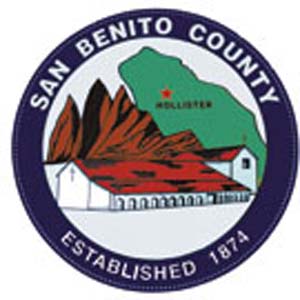Supervisors Tuesday unanimously voted to give 11 county services
areas temporary relief from street lighting shutoffs until those
residents can reconsider paying for non-essential county
services.
Supervisors Tuesday unanimously voted to give 11 county services areas temporary relief from street lighting shutoffs until those residents can reconsider paying for non-essential county services.
The supervisors unanimously approved using $10,068 from the county’s General Fund contingency fund to bridge the CSA’s shortages. But they made it clear that they were extending the aid on good faith and the county expected to get that money back in the future from reserves and fee increases.
At the same time, they issued a stern warning that the CSAs must resolve their funding issues at the earliest opportunity or face termination of all non-essential services. The supervisors reinforced that position by defeating a separate motion to include funding for landscape watering in the emergency package. The vote on the landscape watering proposal was a 3-2, failing to attain the necessary four-fifths majority approval required for use of contingency funds.
Supervisor Pat Loe expressed the board’s frustration with the CSA residents who failed to approve adequate funding for county-supplied services or to find an alternate service provider .
“The taxpayers in my district pay for all their services directly and it’s not fair to ask them to pay for the services in the CSAs, too,” she said.
County service areas are an alternative method of providing governmental services within unincorporated areas. These are usually extended services such as sheriff’s protection, local park maintenance, water, sewer, drainage, street lighting and landscape services.
Each CSA has a separate and unique service agreement with the county defining the services to be provided and the cost. For non-essential services, such as street lighting, the CSA may select an alternate provider or choose to do without the service. Other services, such as water, are considered essential by law.
Proposed rate increases require voter approval within each CSA using rules defined by Proposition 218. A mail ballot election was conducted in August after the county underwent an expansive review of a CSA system that had been neglected for many years.
Prior to that election, three CSAs – Dunneville, Rancho Larios and Cielo Vista – had opted out by majority protest. Two CSAs – Union Heights and Santa Ana – approved the new fee schedule, and 18 CSAs voted down the proposed fee increases.
When the consequences of the election became clear, a number of CSA residents complained that the ballot instructions were not clear – they did not realize that voting no would result in the cessation of non-essential services. They particularly objected to the loss of street lighting while citing safety and security concerns.
The earliest opportunity for another Prop. 218 election to reverse the results is May 2010.
Some CSAs have financial reserves, but those reserves cannot be used now because they were not appropriated during the budget process. Two CSAs have negative balances and 10 do not have adequate fund balances to finance services in fiscal year 2010-11.
Responding to the residents concerns about street lighting, the supervisors approved the bridge funding as a stopgap measure until another election could be held. While issues still exist concerning essential services, the county staff is working with the residents of CSAs that require essential services to come up with a fee schedule that covers those items.










